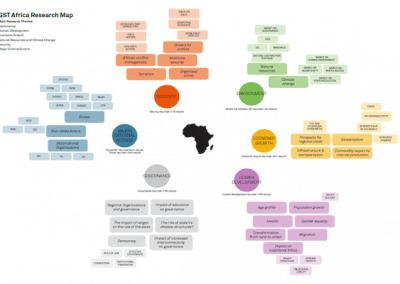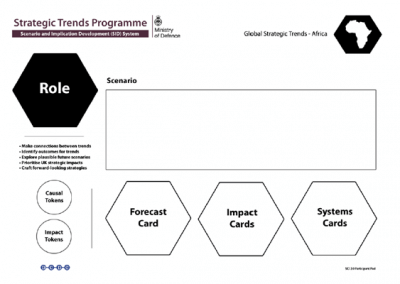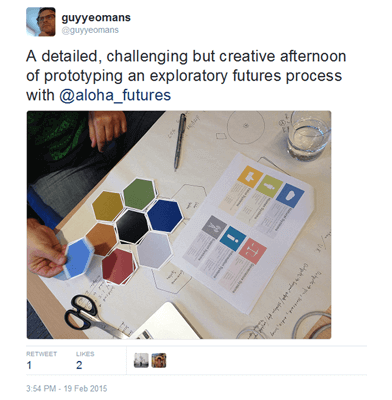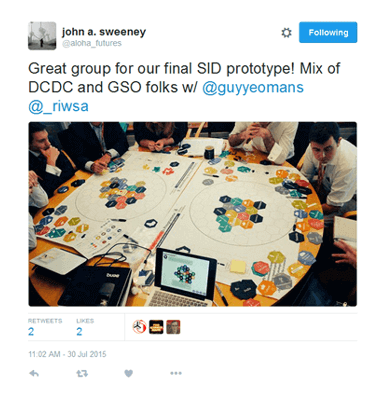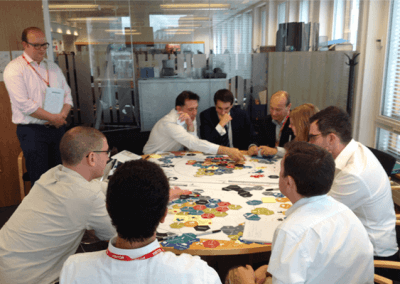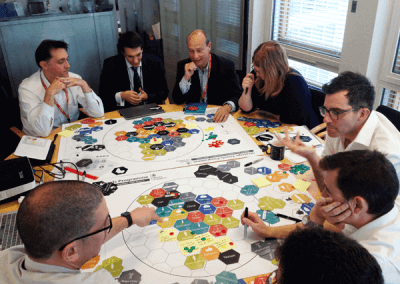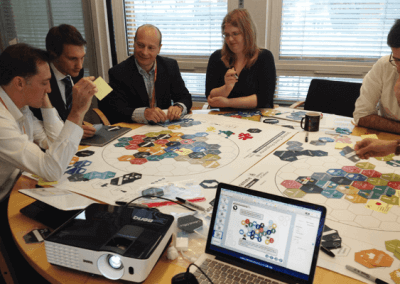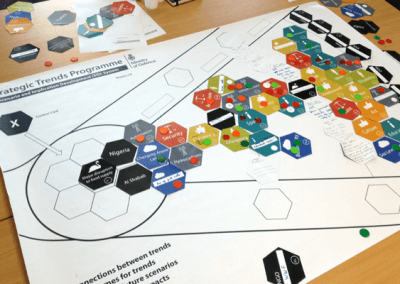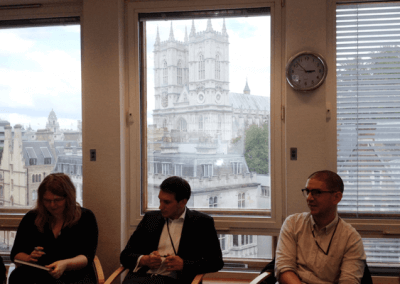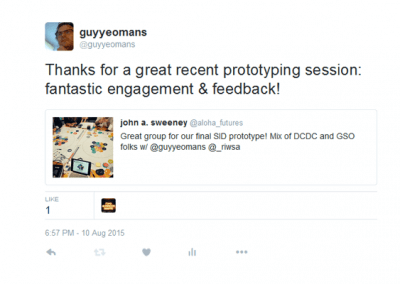Client
Defence Concepts and Doctrine Centre (DCDC) | Ministry of Defence (UK)
Futures approach
Developing, prototyping & providing a futures scenario process based on group gaming methods
Form of engagement
Client commission / Collaboration
Using futures gaming to support the MOD’s Global Strategic Trends review
2015-2016
Beginning in May 2015, as part of a collaboration with John A Sweeney, we worked with the UK’s MOD Defence Concepts and Doctrine Centre (DCDC) to develop the Scenario and Implication Development (SID) system, an interactive futures gaming process designed to achieve four combined objectives:
- ‘Red Team’ DCDC’s trend and driver analysis
- Enable the exploration and development of scenarios
- Engage key groups of stakeholders in a structured, balanced and recordable way
- Provide a generic process able to ‘plug into’ DCDC’s existing data and futures methodologies.
Working with the Global Strategic Trends (GST) team, who are tasked with describing the strategic context for those in the Ministry of Defence (MOD) and wider Government involved in developing long term plans, policies and capabilities, SID was commissioned to support a targeted investigation of African themes as part of the 5th edition of the Global Strategic Trends review. Methodologically, we framed our development approach around the following core perspective:
“Simulation games […] can serve both as an analytical tool to gain insight into complex issues (gaming as a “laboratory”) as well as a learning tool for participants offering various forms of support. Following the gaming as a laboratory metaphor, simulation games may lend themselves to the development of scenarios in which societal responses—and hence, environment-society interactions, discontinuity, and surprise—are better represented”
We used a multi-stage conceptualisation, design, prototyping and testing process in full cooperation with the GST team. After scoping and framing sessions, over the course of four prototyping workshops, including an external session with a team from the UK Government Office for Science, we iteratively developed two separate, but linked, versions of SID, each designed to enable different approaches to exploring alternative African futures:
1 – A more generative process based on an expansive and freeform use of the underlying trend and driver information. This creates the option to generate a range of highly fluid ‘mini-scenarios’ all of which contribute to the generation of a rich and inter-related overarching narrative
2 – A more directed method based on progressively moving participants through the scenario narrative to explore different time eras. This provides a ‘scaffolding’ around which participants are directly prompted to consider, identify and describe potential risks and impacts across the individual actor, thematic and systemic levels.
From this experience, we believe the Scenario and Implication Development (SID) system approach offers a number of distinct advantages over more traditional or well known forms of scenario development, such as the GBN derived 2 x 2 matrix process:
- It creates options for multiple futures (rather than a set number) and creates an emergent and evolutionary process to scenario creation based directly on individual participant data selection and activity
- It explicitly supports the ability for facilitators to actively disrupt the process to represent ‘wild card’ events or strategic surprises, to counter emerging ‘groupthink’ or to prompt more detailed exploration of tacitly unexamined or culturally difficult collective assumptions
- It supports options to consider the longer-term impacts and implications of prospective events and change dynamics
- It is easy to learn and highly interactive and designed to ensure all participants are required to make active contributions.
We recently concluded the project and are now seeking to engage and collaborate with other partners and projects to explore how we can further develop this area of futures practice using interactive and group gaming approaches.
Further information on the Defence Concepts and Doctrine Centre (DCDC)
Follow Guy Yeomans on Twitter
As the Ministry of Defence’s (MOD’s) think tank, the Development, Concepts and Doctrine Centre (DCDC) helps inform defence strategy, capability development, operations and provides the foundation for joint education.
https://www.gov.uk/government/groups/development-c oncepts-and-doctrine-centre#futures
Africa out to 2045 is published by the Development, Concepts and Doctrine Centre (DCDC) as part of its Strategic Trends Programme. This particular regional survey identifies key strategic trends for Africa over the next 30 years.
https://www.gov.uk/government/publications/regional-survey-africa-out-to-2045
Open PDF:


